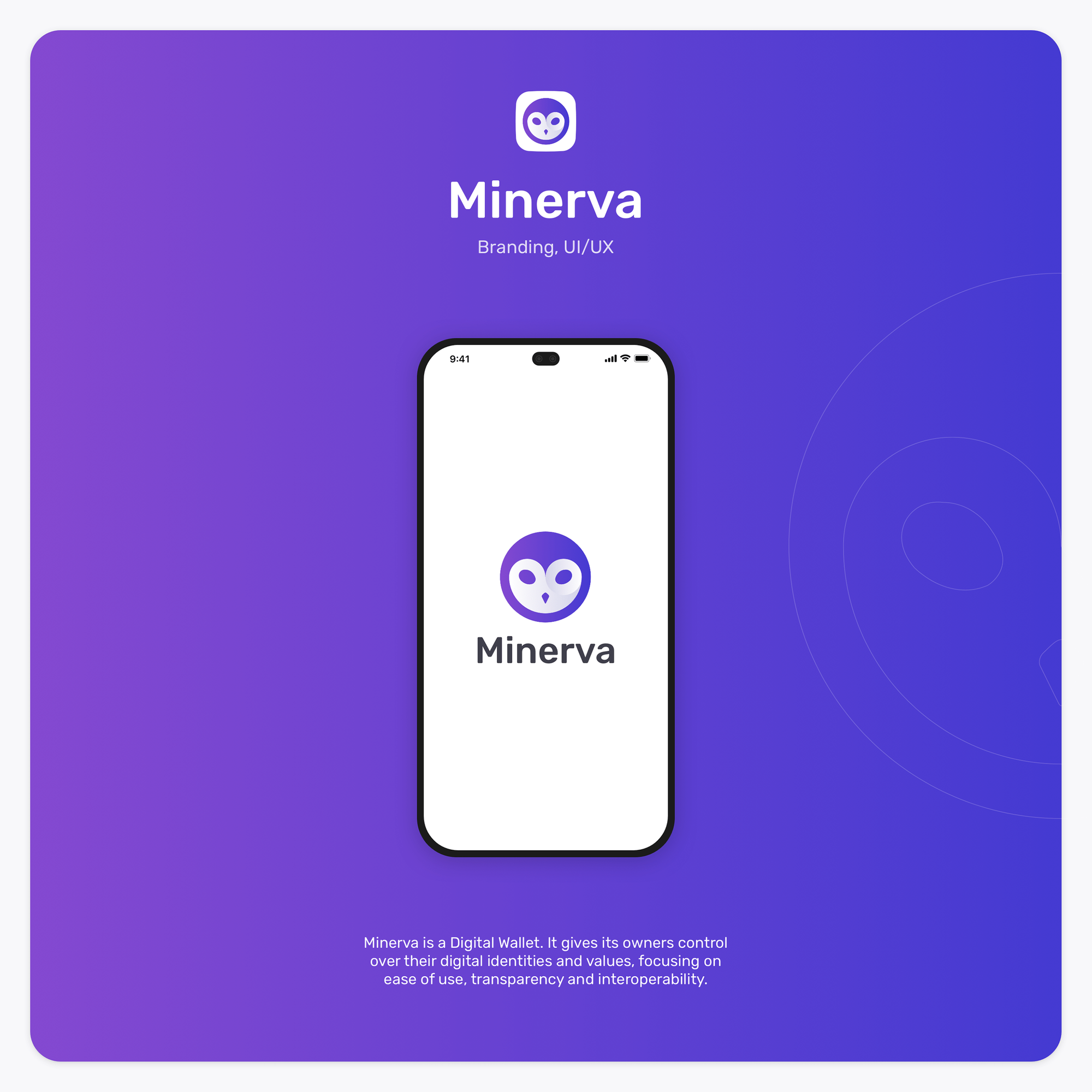Clr Spotlight Series: Minerva Wallet
This week we dive in with Thomas Zeinzinger, cofounder of Minerva wallet, a super usable app for sovereign identities, data and money.

This week we dive in with Thomas Zeinzinger, co-founder of Minerva wallet, a super usable app for sovereign identities, data and money.
How did you get into web3?
In early 2016 I went to a Bitcoin Meetup and there someone highlighted Ethereum to me. Shortly after that I was hooked and it was clear to me that this is going to change the world. Back then we all thought that there would be all sorts of applications on Ethereum - decentralized Uber, decentralized AirBnB, etc. That was actually the area which interested me most. DeFi wasn't a thing and I saw all the potential how we could securely automate so many areas of daily life.
Tell us about your project...what was the inspiration behind it?
We formed out of the BlockchainHub Graz Meetup group and wanted to build a good and sustainable infrastructure, free of massive value extraction and new innovative options like streaming money. This started the development of the ARTIS blockchain network and the Minerva Wallet. The Minerva Wallet was started because there was nothing out there to access blockchains and also use decentralized identity for real-life use cases.
Why does Self Sovereign Identity matter so much?
Most people give away their individual freedom, by signing in with Apple or Google (e.g. here on Notion). It is convenient, but it also provides information to the tech behemoths about every individual move on the internet.
The great thing about SSI is that it doesn't need the middleman anymore, because people can now prove that they are in control of a particular private key. So authentication is easy to solve and identification is only needed when there is a regulatory need for it.
What’s the relationship between identity and privacy?
Human attention data has become the most extracted source of revenue generation in our time and in essence there is no privacy on the internet. If you interact digitally, you have to be an absolute expert to leave no trace and it is super inconvenient.
In Minerva we have therefore created a way to use multiple identities in order to avoid easy cross-referencing. This can help to have improved privacy in combination with being in control of these identities.
What are the main alternatives to Minerva?
Because SSI is slowly developing, we are currently putting our focus on the DeFi space and the convenient way of managing tokens within the Ethereum ecosystem. While there are very few wallets out there which combine SSI and Crypto, we are compared to Metamask, imToken, Argent, Trust Wallet, Rainbow, AlphaWallet, etc.
Therefore we have to stand our ground and provide outstanding usability and easy access to decentralized applications.
What are your thoughts about the state of the Ethereum ecosystem?
I think that Ethereum will likely cover all of DeFi. Ethereum is attracting talent at such a high pace, that I don't see anything else that might come close. I also don't see any other applications than the financial ones on the Ethereum blockchain, because the transaction fees will be just too high for everything else.
Therefore real-life use cases beyond payment or financial speculation, will either have to use sidechains or maybe something like zk-Porter.
What triggered you to become a clr.fund recipient?
We consider the Minerva Wallet as a public good and therefore we also launched the MIVA SuperToken, which is slowly given out and sold to the community. Nevertheless, funding is hard for a wallet development and when looking around there is no-one trying to bootstrap such a development.
Clr.fund is offering an additional way to raise funds and in combination with Gitcoin and other grants it covers at least some of the cost.
Why does clr.fund need Minerva? (ELI5)
Clr.fund is a way to fund projects that might otherwise not be possible. On the other side, people also need to know that clr.fund exists and they can donate to the project they love. This is where Minerva can help clr.fund in spreading the word.
How do you feel about the future of quadratic voting and funding?
It's one more way to do voting. Like all other voting schemes, it has its pros and cons and therefore I think it is here to stay, but also it won't be a substitute for every other voting scheme.
For Minerva it was painful in clr.fund round 8, where we got crushed by all better-known projects. So, if a project is starting now and tries to get funding through QF, I think it is super hard.
What key use cases beyond the current ETH ecosystem fundraising do you see QF being super helpful for?
Honestly I don't know. There is still the unique identity problem. Gitcoin uses all sorts of identification to avoid the gaming of the system and it doesn't look as if it is going to be solved any time soon.
If you could change one thing about the Ethereum space right now, what would it be?
I would create managed funding pools filled by the Ethereum-rich, that support public good projects on various infrastructure levels, so that not every project has to look for VC funding in order to survive!
Thanks a bunch for joining us in conversation, Thomas! 🦉